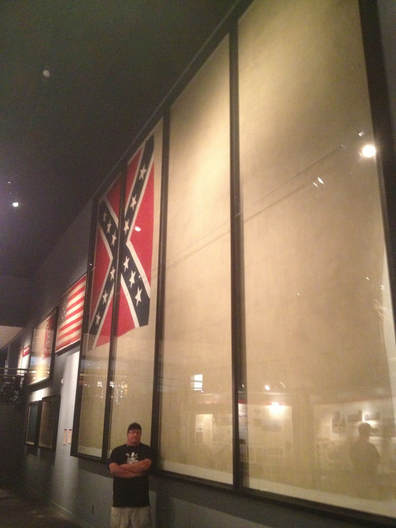 Standing in Front of the Battle Ensign of the CSS Atlanta, National Civil War Naval Museum, Columbus, GA Standing in Front of the Battle Ensign of the CSS Atlanta, National Civil War Naval Museum, Columbus, GA By Sam Burnham @C_SamBurnham An article on the London School of Economics and Political Science's US Centre blog is summarizing a study which claims that "Those who support the presence of Confederate symbols in public spaces in the South tend to have less knowledge of Civil War history, negating a commonly used defense that the emblems represent ‘heritage not hate’" The article is authored by Logan Strother of Princeton University, Spencer Piston of Boston University, and Thomas Ogorzalek of Northwestern University. I want to discuss this paper because I think it calls to attention a few points that Southerners do really need to consider even in the face of some of the paper's flaws. Think of it as a chance for some constructive criticism and not just a northern elites trying to school southerners on history and culture. Don't worry, I'm going to discuss both sides of that coin. Let's start out by being candid about a few things this study hints at that are right. There are just a few things that make me roll my eyes more than some loud, jacked up monster truck plowing down the road with the Confederate Naval Jack flying in tow. There is a flippant and, honestly, disrespectful manner in which many display the variations of the emblem commonly (inaccurately) referred to as "the Confederate flag". The truck scenario, the sight of a tattered flag flapping in breeze while the superimposed grin of Hank Williams Jr looks out over stacks of wrecked cars and chained up dogs, and a bunch of Michiganders wearing Klan robes and flying this emblem all come to mind. The authors of the study quote the United Daughters of the Confederacy voicing their concern that the “sacred banner was being trivialized and dishonored” as it became a more common sight outside of official memorial observances. The banner carries an honor - if it is about history and heritage for you, then hold it with the honor of the soldiers who carried it into battle and display it with the same respect you would offer up to those soldiers. There are inconsistencies in this article as well. The article refers to "people who support the presence of Confederate symbols in public spaces" as having "less knowledge of Civil War history." In the paper and the article alike, they tend to fuse Southern history and Civil War history into one category while Southern history encompasses much more than just those four years.The level of knowledge held by Georgia survey's subjects was determined with two questions: 1) "Do you know the names of any Civil War battles?" (Two responses were needed to get a fully positive result. No additional responses were scored.) And "Do you happen to know who William Tecumseh Sherman was?" Admittedly, these are basic questions and these two questions were standard for all subjects of the study. But two questions can hardly indicate the entirety of someone's knowledge of the war, much less the South in general. And asking about a Union General isn't exactly reaching for the epitome of Southern history. They also refer, in the article, to monuments, symbols, emblems, etc while the study itself focuses only on the presence of the emblem commonly referred to as "The Confederate flag" of "battle emblem," particularly how that emblem is either displayed at state capitols or incorporated into state flags. No statues, memorials, graves, museums, or any of the hundreds of flags used by Confederate forces, regular or militia. Nor does it address the any of the three official national flags of the Confederate States of America. Out of all the Confederate emblems that the article purports are supported by less knowledgeable people, only the battle emblem was discussed with the subjects of the study. Speaking of flags, the paper addresses the controversy over Georgia's state flags: "In 2001, Governor Roy Barnes took up the issue of the flag, again proposing to remove the Confederate emblem and replace it with the state seal (the new design also include each of the states’ previous flags in miniature in a banner beneath the seal). Barnes’ supporters revealed the bill on January 21, 2001, and his allies in the legislature called for a vote the same afternoon. The Confederate emblem’s supporters had no time to respond or to marshal public opinion, allowing Barnes’ proposal to narrowly pass,,,Barnes’ flag design flew over the state capitol from 2001 to 2003. The abrupt adoption of the Barnes’ flag caused a political controversy, and was likely a contributing factor in Barnes’ loss to Sonny Perdue in the ensuing gubernatorial election." "Likely a contributing factor?" The way the flag was changed is widely accepted in Georgia to be the final event that brought down the one party system in Georgia. In the following election the GOP took the governor's mansion and both houses of the legislature after over a century of Democratic rule. This election ended the Tom Murphy political machine and unseated the longest serving state house speaker in US history. Georgia went from a few GOP legislators and a rare GOP gubernatorial challenger to a Republican-dominated state government the very next election.
1 Comment
 Carter on the Work Site Photo Credit: Stacia Franz/Manitoba government via AP Carter on the Work Site Photo Credit: Stacia Franz/Manitoba government via AP By Sam Burnham @C_SamBurnham I'd like to take just a few minutes to offer best wishes to my fellow Georgian, Jimmy Carter. The 92-year-old has been hospitalized in Winnipeg, Canada after dehydrating while working on a Habitat for Humanity site there. I'm guessing it was a pretty toasty day there to overcome a South Georgia farmer like that. Carter is well known for his long time support of the group which builds houses for families in need. Carter doesn't just send checks, he also shows up for duty with his hard hat and gloves and, at 92, works on home construction. He left the crew on site with instructions to stay hydrated and to keep working. Jimmy and Rosalynn Carter are also known for taking their turn to clean bathrooms and cut grass at their church in Plains. They have also worked extensively to eradicate the Guinea worm parasite in Africa. The former president has assured everyone he is OK, and considering he has beaten cancer and will soon beat Guinea worm as well, I'll take his word for it. Hope to see you up and at 'em again very soon, Mr. Carter. By Sam Burnham @C_SamBurnham 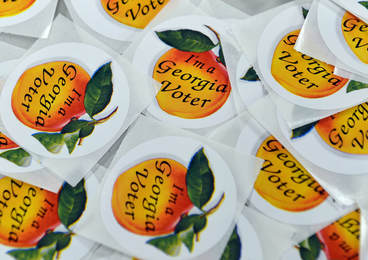 As promised in my previous post, I want to discuss Georgia acquiescing to big government. I discussed this topic in an op-ed commentary on GPB's On Second Thought on Friday but the necessary time constraints of that medium sort of limited what I want to say. I want to elaborate a bit further. First of all there is the issue that this commission was created by the President by executive order, as if out of thin air. With no oversight from Congress, the courts, or the states, only the will of the panel determines if our information is handled in an ethical or legal fashion. There's also no real way of knowing if their actions will have any effect, positive or negative, on the security of our electoral process. Next would be the role of the states in this process. Our elections are run by the states. They are not federal entities, even if the offices being filled are federal. Local and state races do not involve the federal government and federal involvement in them is a dangerous intrusion. As for congressional and even presidential elections, the states elect their representation in a process which should be free from any federal manipulation. The states are not required to acquiesce to the whims of any president or any committee he may literally write into existence without regard for the constitutional roles of the federal executive and state governments. The states have rights, including the right to say no. And in this case, they should say no. President Trump went to Twitter, as he so often does, to ask what the refusing states have to hide. Frankly, they have the same sort of things to hide that citizens do when we oppose gun registries or warrantless wiretaps - things that are simply none of Washington’s business. Assuming privacy and security of information indicates wrongdoing is the sort of thing we see out of Communist China or North Korea. The founders understood that when they drafted Amendment IV. If anything the state needs to be holding less information on voters instead of the Feds holding more. Voters should be required to prove who they are and their legal eligibility to vote in the election and precinct they report to and that is it. Along with sensitive personal information, partisan tendencies and specific candidates voted for are definitely not to be trusted in the hands of partisan officials. The claims that the information is public and therefore should be handed over do not hold water either. If that is the case, the panel could simply go through the same process that any other entity would follow to obtain public info. Go to a state's website, visit a courthouse or state capitol, file a FOIA request, or whatever else you need to. There is no need to publicly request this information or complain about any resistance received over it. The grandstanding then becomes exactly that, just political theatre for the president to proclaim himself as the ruler of the states – a role not supported by the Constitution. It’s just a despotic power trip. We've seen both South Carolina and California refuse to directly share their information with the panel. If we ever see these two states, opposites in every way imaginable, agree on anything, the topic is worth a deeper investigation to determine why they are standing together and if their lead should be followed. For Georgia specifically, the information being handed over is, fortunately, limited. But I have to wonder if it is an agreement, one Republican to another, or if it is Governor Deal bowing before Washington. Frankly I’d like to see the defiance he showed to the Medicaid expansion. Such defiance was the right thing then and it would have been the right thing now. |
Sam B.Historian, self-proclaimed gentleman, agrarian-at-heart, & curator extraordinaire Social MediaCategories
All
Archives
November 2022
|

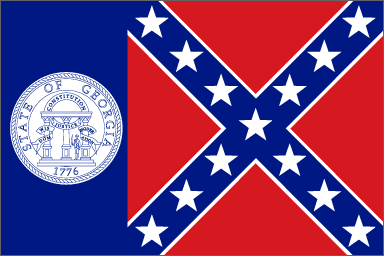
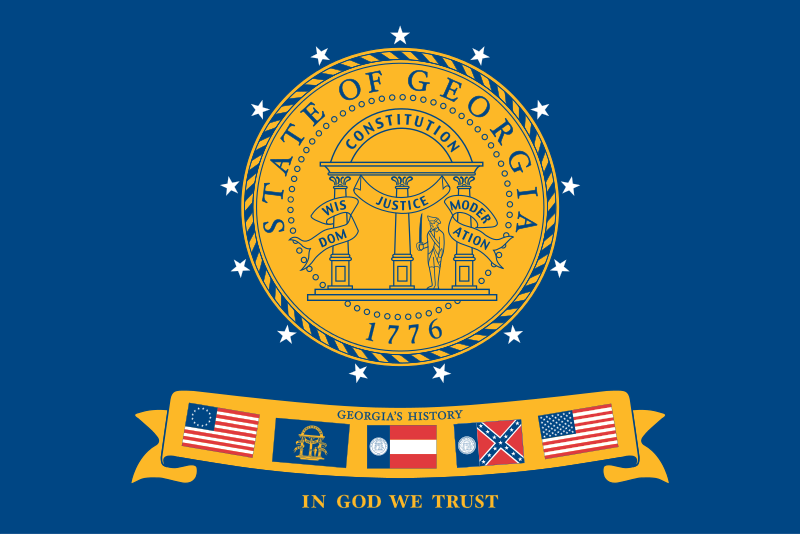
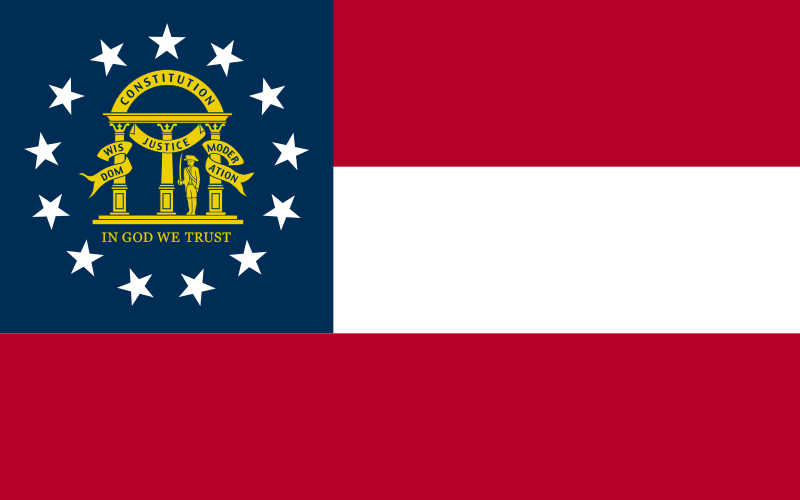





 RSS Feed
RSS Feed
